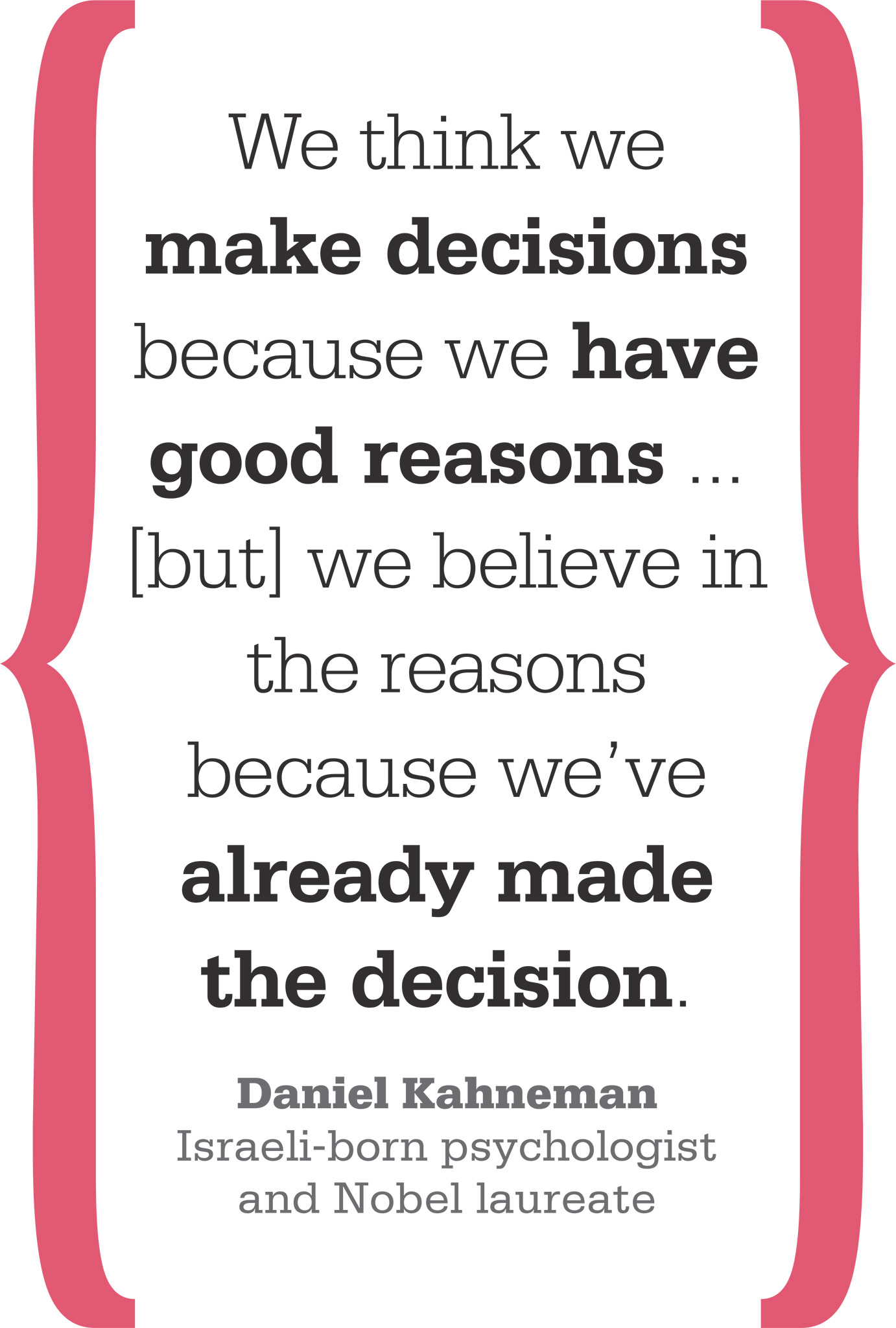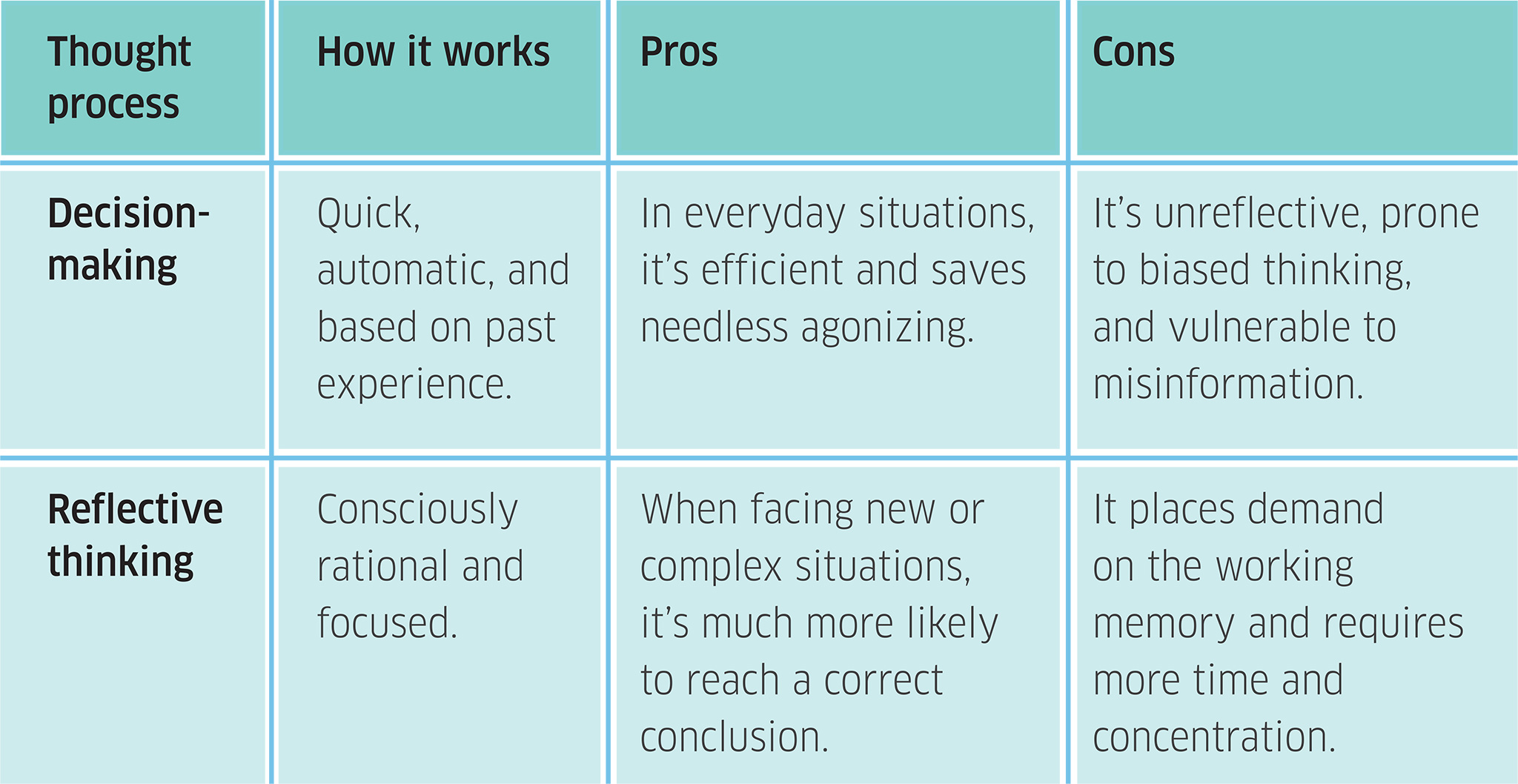
When we want to succeed, it’s tempting to follow any advice that sounds hopeful. The key, however, is to use your judgment, ask questions, and be a little cautious when listening to “success stories.”
Critical thinking doesn’t always come to us naturally—in fact, studies suggest that most of us are rather poor at it unless we have been explicitly taught how to do it. When it comes to making important choices, however, some skill with logic can be indispensable.
Information literacy
If you are about to embark on a new project, the first step is to gather relevant information. To do this effectively, try applying the set of skills below. They are defined by the Association of College and Research Libraries as key to an “information-literate individual”:
- Define the nature and extent of the information you need.
- Acquire that information as efficiently as possible.
- Critically evaluate that information, including how reliable or biased the source might be.
- Use the information effectively, ethically, and legally to achieve a specific goal.
- Remember that information literacy is an ongoing part of lifelong learning.
The first part of critical thinking is to make sure you have all the facts at your disposal. From that solid base, you can make your decisions.
Listen to the right people
Whatever your aspirations, you’ll probably have role models and people you admire. If so, it’s natural to follow their advice about how to succeed—after all, if their path worked for them, doesn’t it follow that it ought to work for you, too?
In fact, it’s wise to be wary of that assumption. Critical thinking reveals the reason—successful people are, in effect, an incomplete data set. For example, a person who risked everything they owned on a business venture and became a billionaire is likely to recommend bold strategies and total commitment. However, there may be other people who took the same course of action and went bankrupt; they would advise caution and securing your assets instead. If you only hear the success stories, you are listening to a self-selecting group who can’t give you the full picture.

Survivorship bias
“Survivorship bias” is a common logical fallacy. We’re prone to listen to the success stories—the survivors —because the others aren’t around to tell the tale. A dramatic example from history is the case of statistician Abraham Wald who, during World War II, was hired by the U.S. Air Force to determine how to make their bomber planes safer. The planes that returned tended to have bullet holes along the wings, body, and tail, and commanders wanted to reinforce those areas because they seemed to get hit most often. Wald, however, saw that the problem was that these bullet holes had not destroyed the planes, and what needed more protection were the areas that weren’t hit. Those were the areas where, if a plane was struck by a bullet, it would never be seen again. His calculations based on that logic are still in use today, and they have saved many pilots.
When taking advice on how to succeed, make sure you have all the facts. Gather your information as fully as possible, and be aware that life’s “winners” may not have all the answers. It’s your decision how to proceed, so ask questions and come to your own conclusions.
 The Classical Syllogism
The Classical Syllogism
The ancient Greek philosopher Aristotle taught a form of reasoning that became central to Western thought: the three-part syllogism, or pattern of deductive reasoning. This remains a useful way to see if our evidence makes sense. Consider these two syllogisms below, and try to spot the false one.
Both conclusions are technically correct, but the syllogism on the right is based on bad reasoning—in this case, it overlooks the possibility that Socrates might be some other mortal creature. Arguments can reach a conclusion that sounds right, but always be alert to their actual logic.

How do we manage information?
The psychological theory of “dual processing” argues that when we assess information, there are two kinds of thought processes at work: decision-making and reflective thinking. When facing a choice, ask yourself which process seems to be dominating, and whether you might benefit from balancing it with the other.

